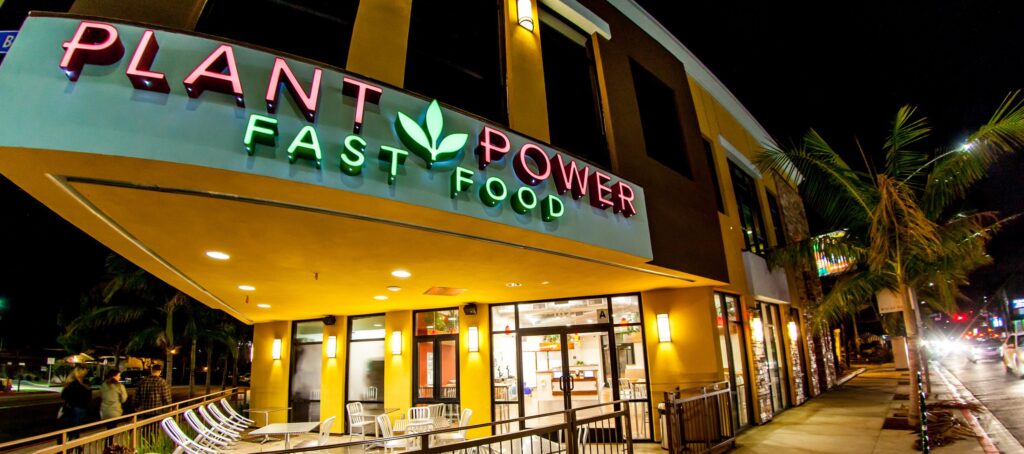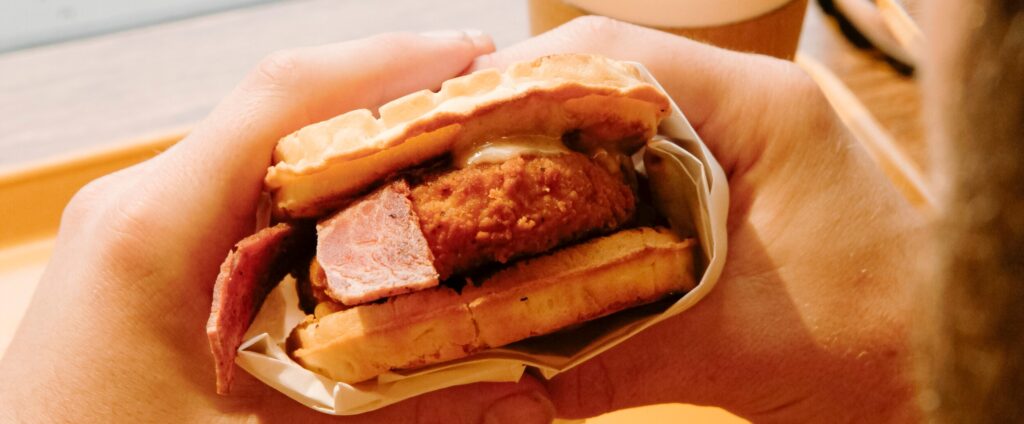
3.7.2021
California-based Plant Power Fast Food is known as an innovator in the quick service restaurant field with its 100% plant-based offerings and biodegradable packaging. Plant Power features a menu that ranges from burgers, fries, shakes and ‘chicken’ tenders – to wraps, salads, juices, raw items and a kids menu. Plant Power has often been referred to as a vegan version of McDonalds and other similar fast-food concepts. Last month, Eat Beyond, an investment issuer focused on the global plant-based and alternative food sector, announced that it had added Plant Power Restaurant Group to its portfolio.

Plant Power has been evolving its technology since its start, in 2016. The first drive-up service was based around touch screen kiosks and those are still in place. The company also effectively reduced labor for in-store dining and take-out service by giving guests the option to select either a traditional high touch face-to-face ordering experience or to self-order through a kiosk. As the pandemic hit, Plant Power became increasingly concerned about the “contact issue” that kiosks presented and turned its attention to improving its mobile app. In December, the company launched its first guest rewards program via its new upgraded mobile app. Within the first 27 days, over 5000 people signed up for the program. Since then, results have continued to soar.
The mobile app allows Plant Power to implement push marketing notifications to users via the app itself, text messages, and also email. Other functionality includes allowing guests to pull up to a designated spot at restaurants featuring drive-up service, order through their mobile device and then have their order delivered to their vehicle. The technology also enables a deeper dive into analytics, making easier to measure the effectiveness of various types of marketing initiatives and promotional offers.

Jeffrey Harris, Co-CEO and Co-Founder of Plant Power, along with others on the leadership team (including co-founders Mitch Wallis and Zach Vouga), is now envisioning creative ways to use the app to support the company’s larger mission. In the future, for example, guests will be able to convert points earned into cash donations for charities aligned with the company’s values.
What is your assessment of consumer demand for vegetarian/vegan options at quick-service restaurants?
Three words: Up, up, and up. We estimate that approximately 80% of our guests are neither vegetarian or vegan. They’re omnivores, who for a variety of reasons are looking to reduce their consumption of meat and dairy products. If you look at that number and then consider that Plant Power Fast Food, a relatively new brand, is one of the top ten fast food restaurants in the US for average unit volume (AUV), then that tells you a lot. The growth of our own company and other comparable brands points unmistakably to the fact that the interest in plant-based food has continued to skyrocket and that consumers are looking for easy and convenient access to healthier options in their busy lives. The fact that most major QSR brands are continuing to add plant-based options to their menus further confirms the trend.

What can we expect in the next few years for Plant Power to continue to disrupt and innovate the QSR industry?
Now that we know this model works, our goal is to scale and do it quickly. We’ve been hard at work this last year assembling a world-class team, expanding our infrastructure and constructing a supply chain. We expect to double the size of our business in the next 16 months. We’re expanding beyond California this year and by next year we should be in at least two additional states. We want to innovate the QSR industry by simply demonstrating the kind of change that is possible and then being an example of that change. As Gandhi said, ‘Be the change you want to see in the world.’ We’re offering a new 100% plant-based choice in fast-food to millions of consumers who are hungry for new choices and by doing so, we’re able to demonstrate that a cruelty-free, sustainable and much healthier version of traditional fast-food works. As consumers are exposed to these new choices and begin to insist upon them, the industry will be forced to follow. We think that this is a great thing for everyone.

